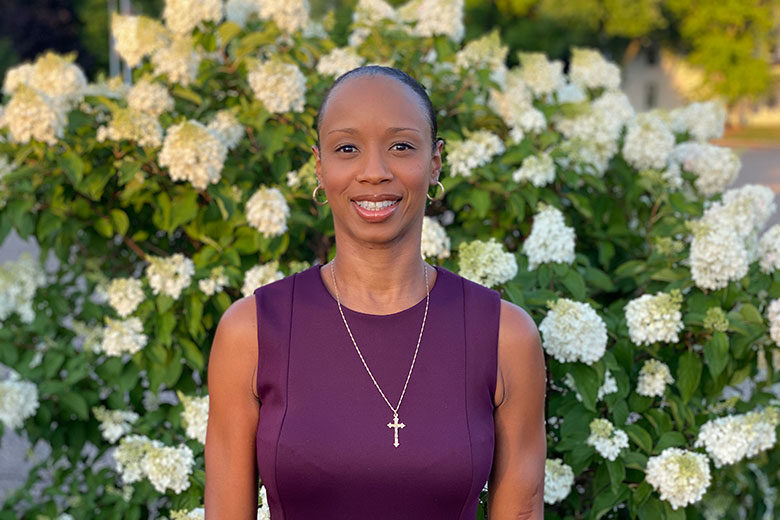
My name is Kimberly Snodgrass and I am a Black registered dietitian nutritionist. I have been in this profession for almost 20 years — it was my mom who encouraged me to go to college and become an RDN. My race makes up only 2.6 percent of my profession.
I have been reading a lot of articles lately on African American RDNs, and it has been my pleasure to see a spotlight on us. I too know what it’s like to go to an RDN meeting and be the only African American, or one of few. It doesn’t bother me to stand out anymore. I guess I’m used to it. In fact, it makes me want to make sure children of color get exposed to me as a professional. Also, I naturally find myself being the social butterfly in the room. I love people, I love to help and that’s the main reason I do what I do.
A few instances in my career stand out and I’d like to share:![]()
One instance happened on a company retreat when one of my managers (a white lady) told me she was glad I was there, because being a Black dietitian meant I could tell people about eating chitterlings. I was speechless and I really didn’t know how to respond. She assumed that because I’m African American I must eat chitterlings. To each their own, but I don’t even like chitterlings. That was such a stereotypical comment; it was very hurtful. I didn’t address it with her but even to this day I wish I would have.
The next instance occurred a few years later when I was sitting in a work meeting and a manager (a white male) compared some employees to monkeys. I was the only African American in the room and that comment really disturbed me. This time I did address it and he reassured me he was not racist and made every attempt to be friendly with me after that. Though he seemed nice and did apologize for his verbiage, it still hurt.
Racism is real and I pray that we keep educating ourselves to look at people as people, not just their color. We are so much more than the color of our skin.
As an African American RDN, I have found it difficult to climb the corporate ladder. I have applied for management and supervisory positions but have not had the opportunity to shine even though I believe I have the education, experience and personality – it’s still not enough. I now plan to get my master’s degree in hopes that it will give employers one less reason to say “no.”
Overall, my experience as an African American RDN has been great and I have worked with some amazing people. One of my colleagues – now retired – had the best sense of humor. One day she said, “Look at our picture, Kim. We look like twins; you’re Ebony and I’m Ivory.” I laughed so hard on the inside. The comment was spot on for her humor and it came from a good place.
Sometimes, we get so caught up in race, but we should realize that at the end of the day, we are just people. Yes, we come in different shades, but as the saying goes: if we are cut, we all bleed the same color.
Let’s stop hurting each other and love one another. When you see me, I don’t want you to see just my color, I want you to see the educated, strong and confident woman I am, who is going to help you lead a healthier life through food and nutrition.
The team behind Food & Nutrition Magazine® aims to amplify the voices of people of color and other underrepresented individuals in nutrition and dietetics and highlight the experiences of RDNs, NDTRs, dietetic interns and nutrition and dietetics students. Our goal is not only to stand in solidarity, but also help inform our readers and increase awareness about the importance of diversity in the field of nutrition and dietetics. We know it’s not enough, but we hope it’s a step in the right direction that will support meaningful conversations and a positive change in the profession.

